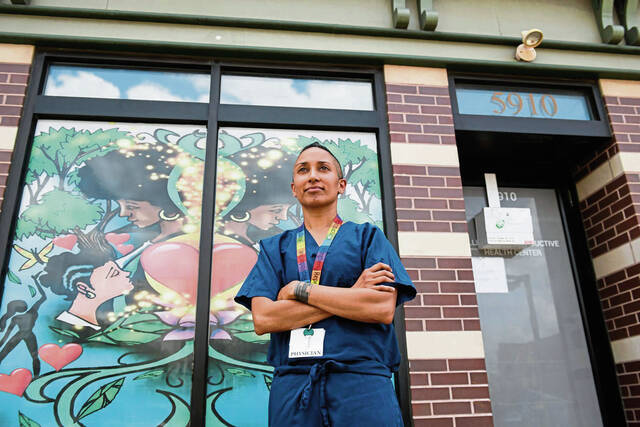After this past week, I feel dented.
Last Saturday, my wife and I enjoyed dinner at a place in the Philadelphia suburbs. When the check arrived, I realized our waitress had confused our tab with the next table’s. When I walked inside to correct it, I noted there was a festive group in the corner, celebrating someone’s birthday. They noted my entrance and exclaimed, “Hey, come have a shot with us.” Their offer was friendly, which I noted with my tone when I said, “No thanks, gotta get going.” After I had straightened out the bill, I waved toward them and said, “Enjoy, and happy birthday.” That’s when one of them said, “And happy Hanukah to you, too.”
Now, for those of you who don’t know what I look like, let’s just say that I carry my origins on my face — Eastern Europe to New York, Jewish.
It took me five seconds to absorb that comment fully. I felt blindsided, hurt and angry. By the time I got to my table and explained to my wife what had happened, I was ready to return and talk with my neighbors about our interchange.
My wife objected. What will you say? They are probably drunk and in no mood to listen to you. And people carry guns, you know. As we walked to the car, she talked me out of “an exchange of values,” my Haverford College term for confrontation.
But I think we were wrong. This is exactly the moment to seize. We need to grab each other and say something about ethnic offenses when we are wounded. We need to say, “You know, that comment was hurtful — I am your neighbor — yes, a Jew can walk away from your offer — we’re sometimes not the quickest for a shot, but we are your neighbors. Jokes toward us feel insulting. And if we can’t be civil at least, we are going to implode together.”
The next day, my wife and I visited friends at the Jersey Shore. As we were gathering beach chairs and umbrellas, a young man in the next driveway was putting on a sport coat while preparing to get into his car. Noting the sun-drenched 95-degree heat and high humidity, I commented empathically, or so I thought: “Wow, sorry, a hot day for a jacket.” He sneered at me and said, “Well sir, some of us have to work instead of going to the ***** beach.” I was too stunned to respond.
Had he just emerged from a fight with his girlfriend? Had he been called into work urgently to cover for a colleague, now envying our beach paraphernalia? Did he perceive a class difference between us, given my leisurely Sunday as opposed to his routine workday? Should I apologize to him for underscoring that class difference? These questions rattled around as I gathered up our beach bag.
What these incidents have in common is resentment. The first was surprising and stinging. My neighbors shifted from inviting to alienating in an instant, perhaps facilitated by alcohol, or by my calling attention to our dissimilarities when I rejected their overture. I’m disappointed in myself for not having said something right away. Notwithstanding my wife’s concerns for safety, I had an opportunity to call attention to ignorance.
The second was more typical. We’ve all had occasions of feeling tension with people from another social class, stemming from educational, economic, religious or ethnic differences. I feel it when I bump into our housekeeper who works for us on a weekly basis. As a psychiatrist, I’ve also felt it from the other end, such as when a patient informed me that I wouldn’t be welcome in his country club because they reserve only a few spots for Jews. I rationalized to myself that I wouldn’t want to be a member there anyway, but the truth is that his evaluation left me feeling marginalized and inferior. Because this injury occurred within the therapeutic setting, I was obligated to bear it and help the patient understand the roots of his need to hurt me.
One take-home is that in public life, we seem to have misplaced our ability to think before we speak and act. The social ladder that has been established in this country can be oppressive, especially for people deprived of educational and economic opportunities. Their umbrage is understandable. As a society, we must help them create effective channels to express their feelings without inducing in others the belittlement they have suffered. And in everyday interactions, when we are demeaned, we must locate our courage, identify our neighbor’s violation and struggle with them to find common ground.
Andrew I. Smolar, M.D., a clinical associate professor of psychiatry at Temple University School of Medicine and at a training and supervising analyst at the Psychoanalytic Center of Philadelphia.








